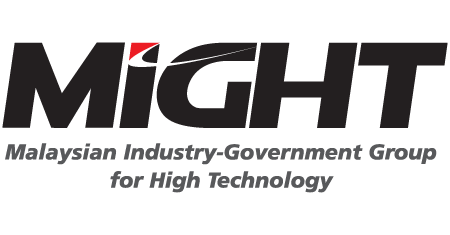KUALA LUMPUR: The World Economic Forum (WEF) has named Malaysia as the region’s top emerging economy in its Global Competitiveness Report (GCR) 2017-2018.
The report listed Malaysia as 23rd out of 137 countries in Global Competitiveness Index, improving the nation’s ranking from 25th last year, ahead of countries such as China, which was ranked 27th. Malaysia took second spot among nine ASEAN countries with Thailand ranked at (32), Indonesia (36), Brunei Darussalam (46), Vietnam (55), Philippines (56), Cambodia (94) and Laos (98).
WEF has been measuring competitiveness among countries since 1979. The annual report measures national competitiveness, which is defined as ‘the set of institutions, policies and factors that determine the level of productivity’. The study used 70% survey data from the United Nations and 30% data from 137 countries, and tracks the performance of the 137 countries on 12 pillars of competitiveness via the Global Competitiveness Index (GCI).
Competitiveness is increasingly interconnected with sustainability. Every nation, region and city will only be truly competitive and able to thrive if sustainability is taken into account. Beyond environmental issues, sustainability also pertains to economic performance, the capacity to attract and retain talent, and the possibility of life in the local and global scales. Bridging growth, competitiveness and sustainability will depend on new concepts, technologies and business models. In achieving this, the solution will increasingly depend on innovation.
In view of the marked importance of innovation, the Global Federation of Competitiveness Councils (GFCC), a global network of over 50 organisations that share the principles to enhance regional, national and global prosperity, and the Malaysian Industry-Government Group for High Technology (MIGHT), a government agency that serves to advance competency in high technology towards sustainable development, are organising the fourth installment of Global Innovation Summit (GIS).
The GIS is held annually to convene global leaders of business, government, academia, civil society and global think tanks to assess the state of competitiveness and enhance innovation capacity worldwide.
Kuala Lumpur will play host to this year’s summit on 29th November until 1st December 2017, with the theme ‘The Sustainable Future of Production, Consumption and Work’, This is the first time GIS convenes in South East Asia with the previous ones held in Canada (2014), Jeddah, Saudi Arabia (2015), London, UK (2016).
Production, manufacturing, distribution, consumption and post-consumption processing (recycling) shall dramatically evolve in the years to come. Movement of resources, materials and goods will be digitalised. The manner we work too shall be significantly changed with the rising of automation, artificial intelligence and adoption of new processes.
This technologically advanced future is unfolding fast and nations, regions and cities need to be adequately prepared to become sustainable and reap the competitive advantage.
Environmental sustainability is increasingly intertwined with competitive economic performance. Global sustainability encompass not merely responsibility towards the planet and future generations, but upholding the sustainability spirit would also create new opportunities through sustainable business models and new technologies. These new solutions will be more efficient, i.e.: lower costs and create values, and in essence be of advantage to companies, cities and nations. In a nutshell, increased productivity leads to growth, which leads to income levels and hopefully, improved well-being.
Concentration on new coalitions and partnerships, skills development, investment in urban centres and infrastructure, more efficient resource use, smart regulation, IT protection, and benchmarking progress while scaling up in global markets are among the principles detailed by the Global Federation of Competitiveness Councils.
The fundamental bedrock, though, is investing to foster national innovation — improving governance, business models and alliances, as well as new technologies. Nations that lead the world in innovation will also lead in environmental sustainability and economically.
The dawn of the Fourth Industrial Revolution shall bring forth transformations fuelled in large part by technology and advancement in science. From biotechnology in Asia to AI in Silicon Valley, to Blockchain and global supply chains, technologies are creating ripple effects that impact societies and their institutions and their economies. Taking stock of these new technologies as well as their disruption potential is critical for all nations and especially developing economies like Malaysia.
The Prime Minister of Malaysia, Datuk Seri Najib Tun Razak has announced a National Transformation aspiration – ‘to become the Top 20 Nation in the world by 2050’ (TN50). In line with this aspiration, the nation actively discusses and map TN50 as per the future it desires. GIS 2017 accords the perfect platform to learn in depth and consider the challenges posed and opportunities available in moving forward.
The programme for GIS 2017 will flow through a series of topics, including how global transformations will shape our future; how we will make, build, assemble and yield things;
how we are going to supply the goods needed by humanity; how we will work and live in a sustainable way; how to “turbocharge” natural resources value, and the policy mix needed for future production.
Among the prominent speakers at the GIS 2017 are Professor Tan Sri Zakri Abdul Hamid, Science Advisor to the Prime Minister and Joint Chairman of MIGHT; Deborah L. Wince-Smith, President GFCC, and President and CEO of US Council on Competitiveness; Tan Sri Datuk Dr Ir Ahmad Tajuddin Ali, Chairman, UEM Group Berhad; Charles O. Holliday, Jr., Chairman, Royal Dutch Shell plc, and Chairman, Global Federation of Competitiveness Councils.
